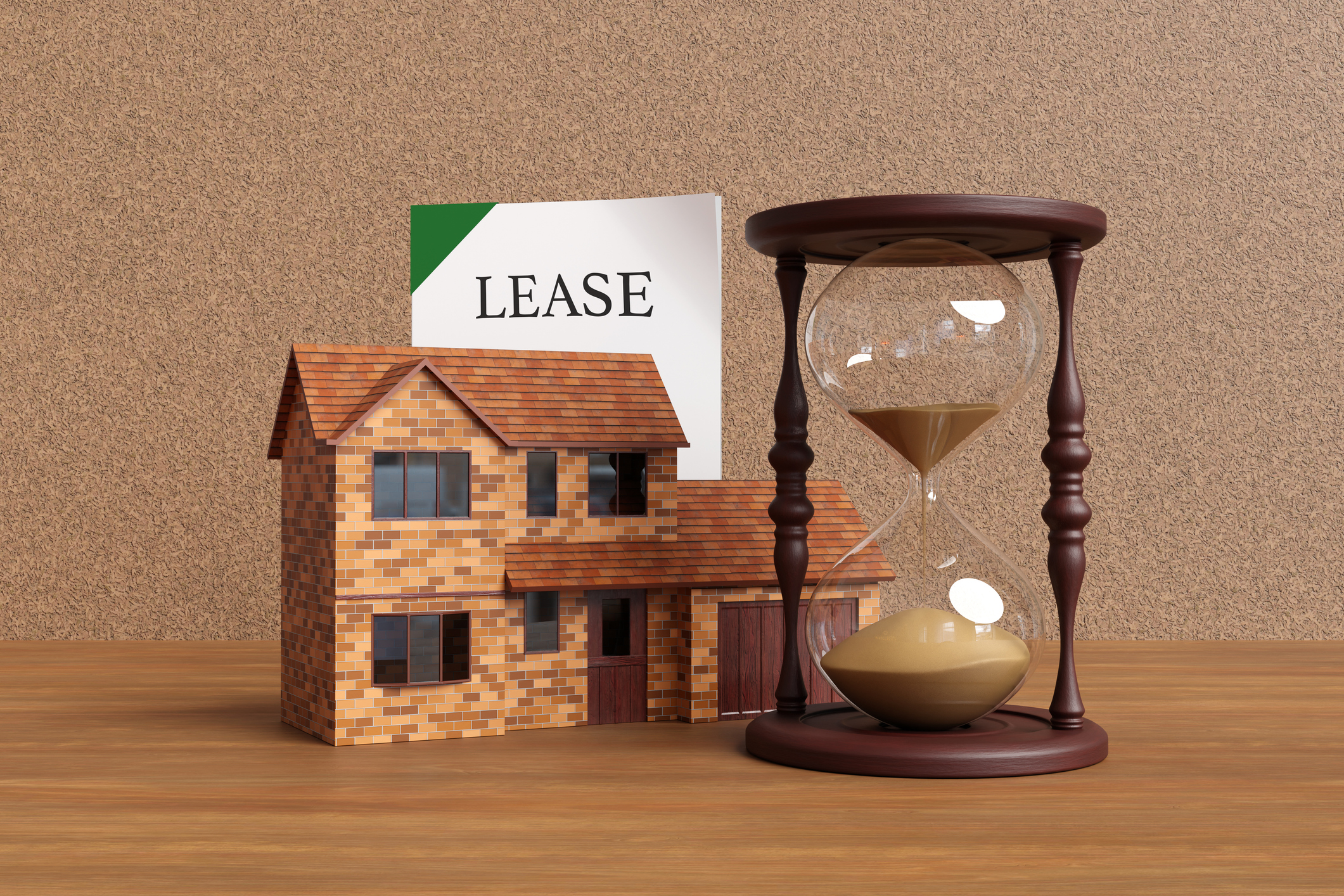End of “fleecehold”: Will leasehold reforms bring an end to the UK's feudal system?
Britain’s feudal system of property ownership is being overhauled. It's about time, says Simon Wilson

Get the latest financial news, insights and expert analysis from our award-winning MoneyWeek team, to help you understand what really matters when it comes to your finances.
You are now subscribed
Your newsletter sign-up was successful
Want to add more newsletters?

Twice daily
MoneyWeek
Get the latest financial news, insights and expert analysis from our award-winning MoneyWeek team, to help you understand what really matters when it comes to your finances.

Four times a week
Look After My Bills
Sign up to our free money-saving newsletter, filled with the latest news and expert advice to help you find the best tips and deals for managing your bills. Start saving today!
What is leasehold?
Leasehold is a form of property ownership that governs almost all flats in England and Wales, but is extremely uncommon anywhere else in the world.
Scotland’s nearest equivalent, known as “feuhold”, was abolished in 2000. The “owner” of a leasehold flat doesn’t actually own the flat or the land, but merely acquires the right to it for a fixed period.
Ownership is retained by a freeholder (or “landlord”), who grants a lease (typically of 99 or 125 years, but sometimes as high as 999 years).
MoneyWeek
Subscribe to MoneyWeek today and get your first six magazine issues absolutely FREE

Sign up to Money Morning
Don't miss the latest investment and personal finances news, market analysis, plus money-saving tips with our free twice-daily newsletter
Don't miss the latest investment and personal finances news, market analysis, plus money-saving tips with our free twice-daily newsletter
The leaseholder pays an annual service charge to the freeholder to cover maintenance of communal areas and insurance, plus a “ground-rent” fee. Once the fixed period is up, all rights to the property revert to the freeholder.
In practice, this means the leaseholder must negotiate lease extensions – at a cost – or else see the resale value of their asset dwindle.
How widespread is leasehold?
There are more than 4.7 million leasehold dwellings in England, accounting for 19% of the total housing stock. And despite all the negative publicity of recent years, and growing concerns over the whole model, that total has been growing rapidly, at a rate of about 100,000 new leasehold properties each year since 2019.
Typically, more densely populated areas – with more flats, rather than houses – have a greater proportion of leasehold homes.
London has 1.3 million, accounting for 36% of all dwellings, while the north-west of the country has 910,000, accounting for 27%.
What’s the problem with the leasehold system?
Leasehold originated with big landowners leasing out land for agriculture to peasants – and later for construction – while retaining the freehold ownership.
It’s popular with developers because it gives them the potential to profit from ongoing ground rent and service charges. And it also provides a way of managing shared spaces and overall maintenance in blocks of flats and converted houses.
In that sense, it solves a real problem – someone’s got to maintain the building.
The difficulty is that the system is ripe for abuse by unscrupulous freeholders (and their managing agents) in the form of price gouging, scams and exploitation, says Matthew Brooker on Bloomberg. “Excessive and opaque service charges are the focus of much outrage and frequent disputes.” And in recent decades, those “fleecehold” abuses have become ever more glaring and obscene.
What are some of the problems with leasehold?
There have been many cases of freeholders setting up excessive and spiralling “ground-rent” payments that trap leaseholders in their properties by making them unsellable, overcharging, and even paying themselves kick-backs on contracts, says the Financial Times.
Developers have sold an estimated one million new-build houses on a leasehold basis – often with onerous terms – for no reason other than to provide an ongoing revenue stream.
Uncooperative freeholders have held up critical fire-safety measures in some buildings.
Meanwhile, the process for leaseholders to challenge their freeholder, or gain control of the building, is complex, expensive and slow.
For all these reasons, the value of flats has fallen in recent decades relative to the value of houses, as buyers factor in the risks. And both the previous Tory government and the current Labour one have pledged to overhaul the leasehold system.
What are the government's leasehold reforms?
The government is passing a series of reforms which it says marks the “beginning of the end” for the leasehold system. Just before the July 2024 election, Parliament hurriedly passed the Leasehold and Freehold Reform Act. But most of its provisions haven’t yet come into force and will require secondary legislation.
The act makes it cheaper and easier for leaseholders to extend their lease or buy their freehold, including by abolishing the requirement to pay marriage value (meaning the uplift in value as a result of a lease extension – leaseholders typically have to pay half of this to the freeholder).
It will also cap ground rents, remove the threat of forfeiture, and increase the standard lease extension term to 990 years, with ground rent reduced to a peppercorn (zero financial value). And it will ban leaseholds for new houses, with a few exceptions.
In addition, the government has announced a new Leasehold and Commonhold Reform Bill, due this autumn, which will end the granting of leasehold tenure for new properties, making commonhold the default.
What’s commonhold?
Commonhold is a form of tenure where people own their flat outright, while the shared parts of a building or development – common hallways, roofs, shared gardens – are owned by a commonhold association (a special type of corporation).
Similar legal structures are the norm in continental Europe and North America.
Commonhold is similar to the current situation of “shared freehold”, where two or more flat-owners jointly own the freehold of a building, and lease their individual flats back to themselves as leasehold properties.
With commonhold, though, there’s a more defined and regulated system for governing the arrangements standardised in law.
Will leasehold reform solve things?
Not everyone thinks so. Developers don’t like it, so may be less willing to build.
Lenders don’t either, since it’s an unproven model and they’re unsure how to price the risks.
Plenty of campaigners for leasehold reform are unconvinced, too.
Without a clear pathway to commonhold for existing leaseholders, “the government’s half-baked intervention risks creating a new two-tier market”, says Harry Scoffin of the Free Leaseholders lobby group.
Labour’s current proposals would require existing leaseholders to acquire the freehold of their buildings from their landlords before then converting. But that’s expensive, often running into tens of thousands of pounds for each leaseholder.
The Law Commission recommended government-backed loans to help them, but Labour has ruled these out.
Still, the doubts are technical and practical rather than fundamental by this stage, says Brooker. “The desirability of change is clear. It’s high time England’s castle-dwelling serfs threw off their chains.”
This article was first published in MoneyWeek's magazine. Enjoy exclusive early access to news, opinion and analysis from our team of financial experts with a MoneyWeek subscription.
Get the latest financial news, insights and expert analysis from our award-winning MoneyWeek team, to help you understand what really matters when it comes to your finances.
-
 How a ‘great view’ from your home can boost its value by 35%
How a ‘great view’ from your home can boost its value by 35%A house that comes with a picturesque backdrop could add tens of thousands of pounds to its asking price – but how does each region compare?
-
 What is a care fees annuity and how much does it cost?
What is a care fees annuity and how much does it cost?How we will be cared for in our later years – and how much we are willing to pay for it – are conversations best had as early as possible. One option to cover the cost is a care fees annuity. We look at the pros and cons.
-
 "Botched" Brexit: should Britain rejoin the EU?
"Botched" Brexit: should Britain rejoin the EU?Brexit did not go perfectly nor disastrously. It’s not worth continuing the fight over the issue, says Julian Jessop
-
 'AI is the real deal – it will change our world in more ways than we can imagine'
'AI is the real deal – it will change our world in more ways than we can imagine'Interview Rob Arnott of Research Affiliates talks to Andrew Van Sickle about the AI bubble, the impact of tariffs on inflation and the outlook for gold and China
-
 Tony Blair's terrible legacy sees Britain still suffering
Tony Blair's terrible legacy sees Britain still sufferingOpinion Max King highlights ten ways in which Tony Blair's government sowed the seeds of Britain’s subsequent poor performance and many of its current problems
-
 Rachel Reeves is rediscovering the Laffer curve
Rachel Reeves is rediscovering the Laffer curveOpinion If you keep raising taxes, at some point, you start to bring in less revenue. Rachel Reeves has shown the way, says Matthew Lynn
-
 ISA reforms will destroy the last relic of the Thatcher era
ISA reforms will destroy the last relic of the Thatcher eraOpinion With the ISA under attack, the Labour government has now started to destroy the last relic of the Thatcher era, returning the economy to the dysfunctional 1970s
-
 'Expect more policy U-turns from Keir Starmer'
'Expect more policy U-turns from Keir Starmer'Opinion Keir Starmer’s government quickly changes its mind as soon as it runs into any opposition. It isn't hard to work out where the next U-turns will come from
-
 Britain heads for disaster – what can be done to fix our economy?
Britain heads for disaster – what can be done to fix our economy?Opinion The answers to Britain's woes are simple, but no one’s listening, says Max King
-
 8 of the best properties for sale with indoor gyms
8 of the best properties for sale with indoor gymsThe best properties for sale with indoor gyms – from a four-storey mews house in London’s Knightsbridge, to a 1920s Arts & Crafts house in Melbury Abbas, Dorset